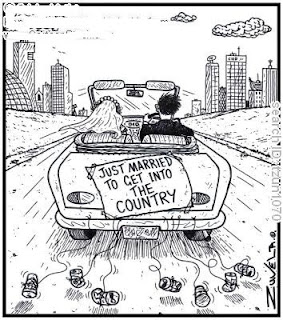According to Part III of the Trinidad and Tobago
Equal Opportunity Act 2000, Sections 8-10 outline the instances where discrimination can occur, with sections 11-14 highlighting the execptions to discrimination.
Discrimination against applicants8. An employer or a prospective employer shall not discriminate against a person—
(a) in the arrangements he makes for the purpose of determining who should be offered employment;
(b) in the terms or conditions on which employment is offered; or
(c) by refusing or deliberately omitting to offer employment.
Discrimination against employees9. An employer shall not discriminate against a person employed by him—
(a) in the terms or conditions of employment that the employer affords the person;
(b) in the way the employer affords the person access to opportunities for promotion, transfer or training or to any other benefit, facility or service associated with employment, or by refusing or deliberately omitting to afford the person access to them; or
(c) by dismissing the person or subjecting the person to any other detriment.
Vocational training10. A person shall not discriminate against another person where that other person is seeking or undergoing training for any employment—
(a) in the terms or conditions on which that other person is afforded access to any training course or other facilities concerned with such training; or
(b) by terminating that other person’s training or subjecting that other person to any detriment during the course of training.
Exception: Genuine occupational qualification11. (1) Sections 8 to 9 shall not apply in respect of discrimination on the grounds of sex in a case where being of a particular sex is a genuine occupational qualification for employment, promotion, transfer or training.
11. (2) Without limiting the generality of subsection (1), being of a particular sex is a genuine occupational qualification if—
(a) the duties relating to the employment can be performed only by a person having physical attributes (excluding physical strength or stamina) which only a person of a particular sex possesses;
(b) the duties relating to the employment or training involve participation in a dramatic performance or other entertainment in a capacity for which a person of a particular sex is required for reasons of authenticity;
(c) the duties relating to the employment or training involve participation as an artist’s photographic or exhibition model in the production of a work of art, visual image or sequence of visual images for which a person of a particular sex is required for reasons of authenticity;
(d) the duties relating to the employment or training need to be performed by a person of a particular sex to preserve decency or privacy;
(e) the nature of the establishment, or the part of it within which the work is done, requires the employment to be held by a person of a particular sex; or
(f) the person employed or being trained provides or is to provide persons of a particular sex with personal services concerning their welfare, education or health or similar personal services, and those services can most effectively be provided by a person of that particular sex.
11. (3) Sections 8 to 10 shall not apply in a case where—
(a) the duties relating to the employment or training involve participation in a dramatic performance or other entertainment in a capacity for which a person of a particular race is required for reasons of authenticity;
(b) the duties relating to the employment or training involve participation as an artist’s photographic or exhibition model in the production of a work or art, visual image or sequence of visual images for which a person of a particular race is required for reasons of authenticity.
Exception: Religious shop12. Sections 8 to 10 shall not apply in respect of discrimination on the ground of religion in a case where being of a particular religion is a necessary qualification for employment in a religious shop.
Exception: Domestic services and family business13. (1) Sections 8 to 10 shall not apply to the employment of not more than three persons in domestic or personal services in or in relation to the home of the employer.
13. (2) Notwithstanding sections 8 to 10, a family business may employ relatives in favour of non-relatives.
Exception: Inherent requirements, unjustifiable hardship, risk14. Sections 8 to 10 shall not apply to the employment of a person with a disability if—
(a) taking into account the person’s past training, qualifications and experience relevant to the particular employment and, if the person is already employed by the employer, the person’s performance as an employee, and all other relevant factors that it is reasonable to take into account, the person because of disability—
(i) would be unable to carry out the inherent requirements of the particular employment; or
(ii) would, in order to carry out those requirements, require services or facilities that are not required by persons without a disability and the provision of which would impose an unjustifiable hardship on the employer;
(b) because of the nature of the disability and the environment in which the person works or is to work or the nature of the work performed or to be performed, there is or likely to be—
(i) a risk that the person will injure others, and it is not reasonable in all the circumstances to take that risk; or
(ii) a substantial risk that the person will injure himself.
